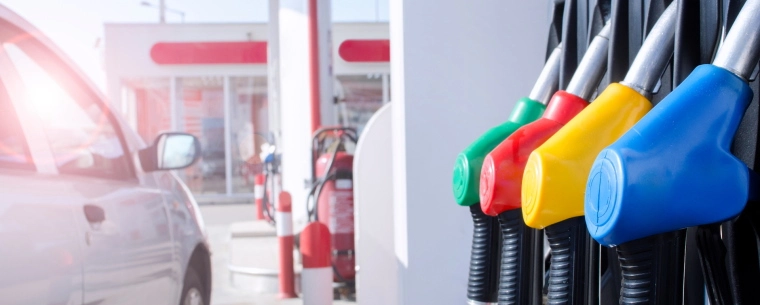What's the Difference Between Premium & Standard Fuel?
Published on: Friday, 22 July 2022 | Author: Jack Dreyer
Fuel is very much in the spotlight right now — and for good reason, too. With prices rising drastically week on week, fuel has been brought to the very forefront of our minds. But how much do we actually know about the liquid powering our vehicles?
When we pull up to a petrol station and choose between ‘Standard’ and ‘Premium’ options, do we actually know what we’re getting? If, like many others, you’ve been wondering about the various options when it comes to fuel types, read on and all shall be made clear.
What is ‘premium fuel’?
While the name betrays a sense of luxury and higher quality, what is it exactly that makes ‘premium’ fuel premium?
There are many different types of petrol, and each has its own unique chemical makeup. Primarily, the main difference between each type is the ‘octane’ rating. Generally speaking, the higher the octane rating in the fuel, the more effective it will be when working with a higher-compression engine. So, premium fuel is the fuel with the highest octane rating.
The different petrol octane ratings are as follows:
- Premium petrol has an octane rating of 99.
- Super unleaded petrol has an octane rating of 97 or 98.
- Unleaded petrol (or regular petrol) has a 95 octane rating.
Most cars on the market in the UK will be compatible with the 95 octane rating as the higher amounts are for more high-performance cars. The electronics in most cars in the UK have been programmed to run on this unleaded, regular petrol.

Which vehicles need premium fuel?
The only cars that need premium fuel are those that have a petrol engine with a high compression rate. Since premium petrol is intended for certain high-performance cars, when these cars use regular 95 octane fuel, they can suffer. This is down to the compression ratio and combustion chamber size not being compatible with lower octane fuels.
But how do you know whether your car requires premium fuel to keep it running? The first way to find out is by looking inside the fuel filler cap. Inside here should be a sticker providing you with:
- The type of fuel your engine needs
- The minimum required octane
If you can’t find a sticker here, check in your vehicle handbook for more information. Or, call your vehicle manufacturers and ask.
What about premium diesel?
When it comes to diesel, things are slightly different. Premium petrol is clearly distinguished from regular models due to its chemical makeup in octanes. Diesel, however, doesn’t ignite to create power. Instead, it is added to compressed air.
As a result, premium diesel contains compounds that target things such as air purity; usually these ingredients are aimed at shifting soot deposits and other oily matter from in the engine fuel system. It’s up to the driver, then, as to whether they want to splash out on the more expensive premium diesel.

Is premium fuel better for your car?
When compared to standard fuel, there are a number of differences that come with premium options. But are they better for your car?
Producers of these fuels argue that premium options help to remove dirt and matter that has built up in the engine in the same way that premium diesel does. It is also argued that premium fuels help engines to run smoother.
However, it really depends on which type your car needs. It is perfectly acceptable to fill your car up with higher octane petrol than it needs — using a 98 octane in a car that usually takes 95. Though, there aren’t many tangible, clearly discernible benefits. The only real guarantee is that it will cost you more!




